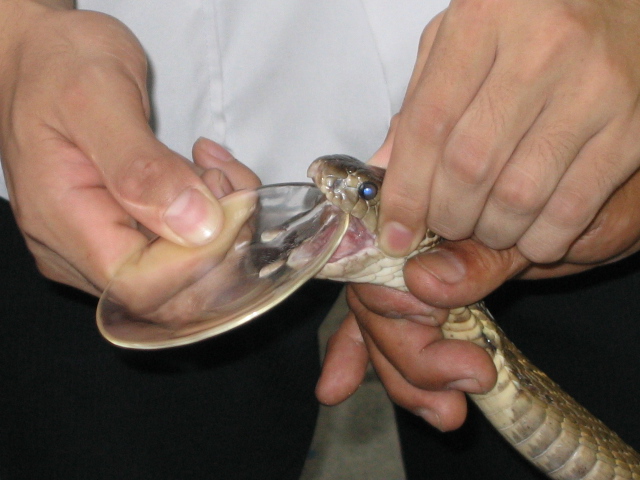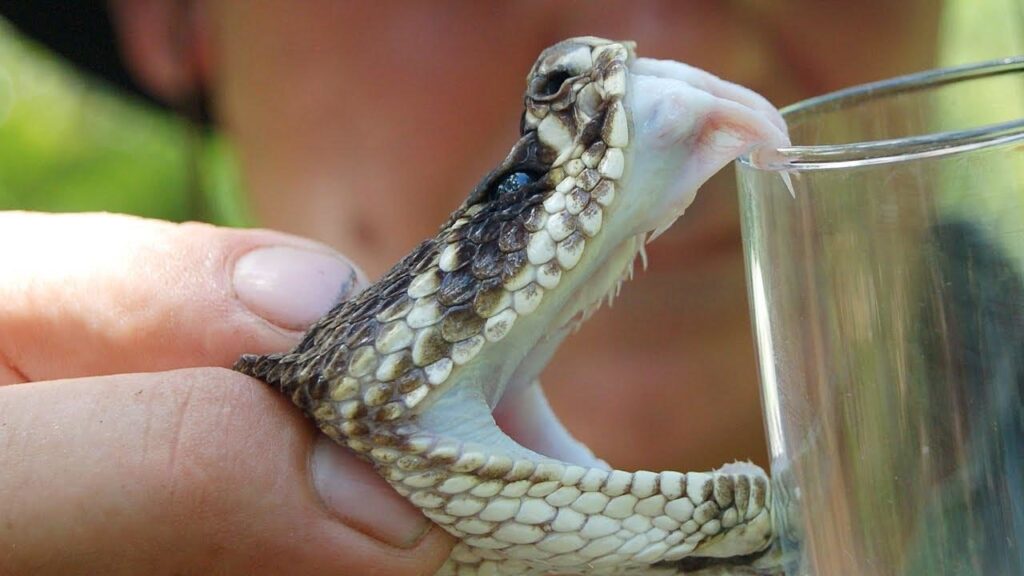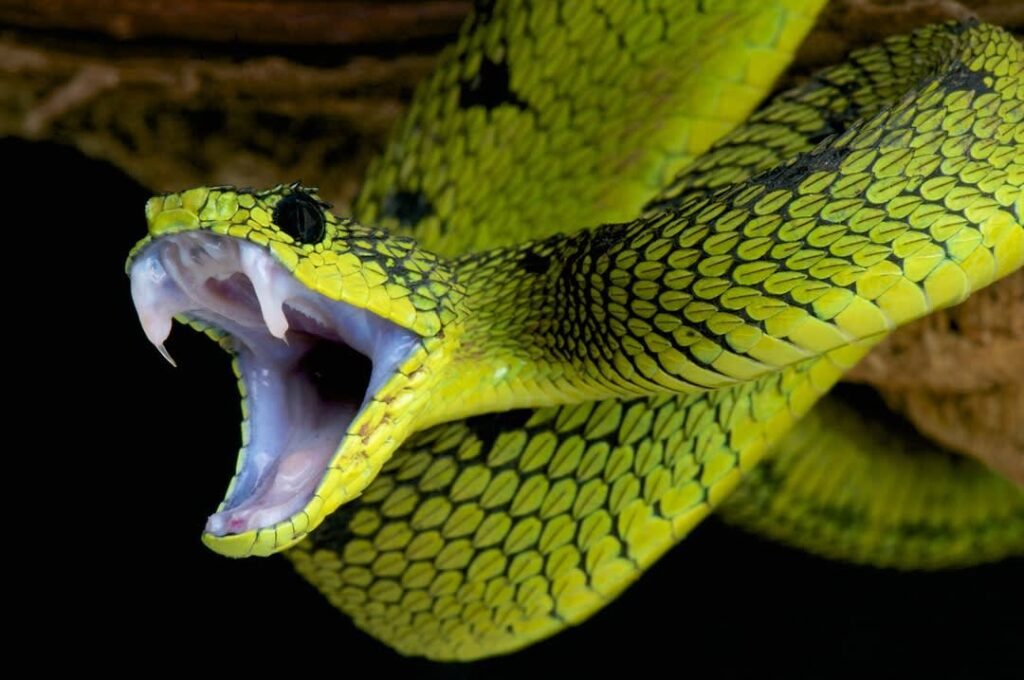The biological characteristics of snakes are seasonal activities, so after days of heavy rain are favorable conditions for venomous snakes to work. Therefore, this is also a time when many people are susceptible to snake bites, which can occur when working or traveling with common snake species. The article Most Popular Medication For Poisonous Snakes will help you learn about snakebite medications.
What is medication for poisonous snakes?
The medication for the treatment of snakebites depends on the type of snake and the severity of the bite. In general, the first step in treating a snakebite is to get the person to a hospital as soon as possible. Once at the hospital, the person will be treated with medications to help reduce the pain and swelling caused by the bite. They may also be given medications to help prevent or treat the infection.

If the person has been bitten by a venomous snake, they may also be given antivenom. Antivenom is a medication that is specifically designed to neutralize the venom of certain snakes. It is made from small amounts of the venom itself, and it can help to prevent or reverse the harmful effects of the venom.
It’s important to note that if you suspect that someone has been bitten by a venomous snake, you should seek medical attention immediately. Do not try to treat the bite at home, as this can be dangerous and may not be effective. This is the first information in Most Popular Medication For Poisonous Snakes.
What should we do when bitten by a venomous snake?
If you are bitten by a venomous snake, it is important to seek medical attention as soon as possible. In the meantime, there are a few things you can do to help reduce the risk of serious complications from the bite:
Stay calm and try to keep the affected limb immobilized. This can help to slow the spread of venom through your body.
Remove any tight clothing or jewelry from the affected limb, as swelling may occur.

Clean the bite wound with soap and water, but do not try to suck out the venom or cut the wound.
Keep the affected limb at or below heart level to help slow the spread of the venom.
If possible, try to remember the appearance of the snake so that you can describe it to medical personnel. This may help them determine the appropriate treatment.
It is important to seek medical attention as soon as possible after a venomous snakebite. Do not try to treat the bite at home, as this can be dangerous and may not be effective.
This is important information in Most Popular Medication For Poisonous Snakes.
What are the common snake venom drugs?
Antivenom, also known as antivenin or antivenene, is a medication that is used to treat snakebites. It is made from small amounts of the venom of the snake that caused the bite, and it is specifically designed to neutralize the venom’s harmful effects.
There are many different types of antivenom available, and the specific type that is used to treat a snakebite depends on the type of snake that caused the bite. Some common types of antivenom in the Most Popular Medication For Poisonous Snakes include:
CroFab: This antivenom is used to treat bites from pit vipers, including rattlesnakes, copperheads, and cottonmouths.
Anavar: This antivenom is used to treat bites from the Fer-de-Lance and bushmaster snakes, which are found in Central and South America.
Antivenin (Micrurus fulvius): This antivenom is used to treat bites from coral snakes, which are found in the United States and Central and South America.
Antivenin (Bothrops): This antivenom is used to treat bites from the Bothrops genus of snakes, which are found in Central and South America.
It’s important to note that antivenom is not a cure-all and it may not be effective in all cases of snakebite. In some cases, the person may still experience symptoms or complications from the bite even after receiving antivenom.
Measures to prevent snake bites
There are several steps you can take to reduce your risk of being bitten by a snake:
Stay away from areas where snakes are known to live, such as tall grass, piles of leaves, or rocky crevices.
Wear long pants and closed-toe shoes when hiking or walking in areas where snakes may be present.
Be alert and pay attention to your surroundings when in areas where snakes may be present.

Do not try to handle or capture snakes. If you see a snake, leave it alone and give it a wide berth.
Do not leave trash or clutter in areas where snakes may be present, as this can attract rodents and other prey that snakes may be looking for.
Keep your yard clean and well-maintained, as overgrown grass and weeds can provide hiding places for snakes.
Consider installing snake-proof fencing around your property, particularly if you live in an area with a high population of venomous snakes.
By taking these precautions, you can help to reduce your risk of being bitten by a snake. However, it’s important to remember that even if you take all necessary precautions, there is still a chance that you may encounter a snake and be bitten. In this case, it is important to seek medical attention as soon as possible.
Note when using poison snake medicine
Here are a few important things to note when using antivenom to treat a snakebite:
Antivenom is not a cure-all and it may not be effective in all cases of snakebite. In some cases, the person may still experience symptoms or complications from the bite even after receiving antivenom.
Antivenom can sometimes cause allergic reactions. Symptoms of an allergic reaction can include difficulty breathing, hives, and swelling of the face or tongue. If you experience any of these symptoms after receiving antivenom, you should notify a healthcare provider immediately.
It is important to receive the correct type of antivenom for the type of snake that caused the bite. Using the wrong type of antivenom can be ineffective or even harmful.
Antivenom is a potentially life-saving medication, but it is not without risks. Some people may experience side effects from the treatment, such as nausea, vomiting, or difficulty breathing.
In some cases, a person may need to receive multiple doses of antivenom to fully neutralize the venom.
It’s important to follow the instructions of a healthcare provider when using antivenom to treat a snakebite. If you have any concerns or questions about the treatment, you should discuss them with your healthcare provider.
This is important information in Most Popular Medication For Poisonous Snakes.
Ensuring safety when bitten by a snake is essential, hopefully, the article Most Popular Medication For Poisonous Snakes will provide useful information for you.

